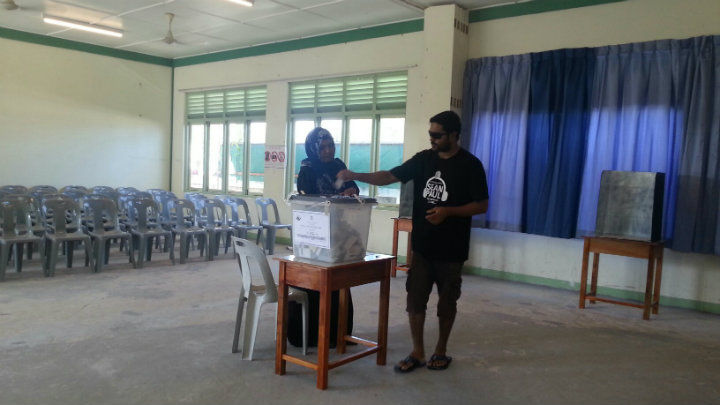As sole candidates, 13 councillors elected without contest
Thirteen councillors have been elected without a contest after the elections commission declared them winners by default in the absence of other contenders.

15 Mar 2017, 09:00
Thirteen councillors have been elected without a contest after the elections commission declared them winners by default in the absence of other contenders.
The 13 men were the only candidates to stand for four island councils and one atoll council seat, the electoral body announced on Monday.
Hussain Hassan from the main opposition Maldivian Democratic Party was elected unopposed to the northern Haa Dhaal atoll council from the Nolhivaram constituency.
Independent candidates Abdul Majeed Hussain, Ahmed Hussain, and Wafir Ahmed were elected to the island council of Kinolhas in Raa atoll. The northern island has a local population of 432 people, according to the 2014 census.
Become a member
Get full access to our archive and personalise your experience.
Already a member?
Discussion
No comments yet. Be the first to share your thoughts!
No comments yet. Be the first to join the conversation!
Join the Conversation
Sign in to share your thoughts under an alias and take part in the discussion. Independent journalism thrives on open, respectful debate — your voice matters.




